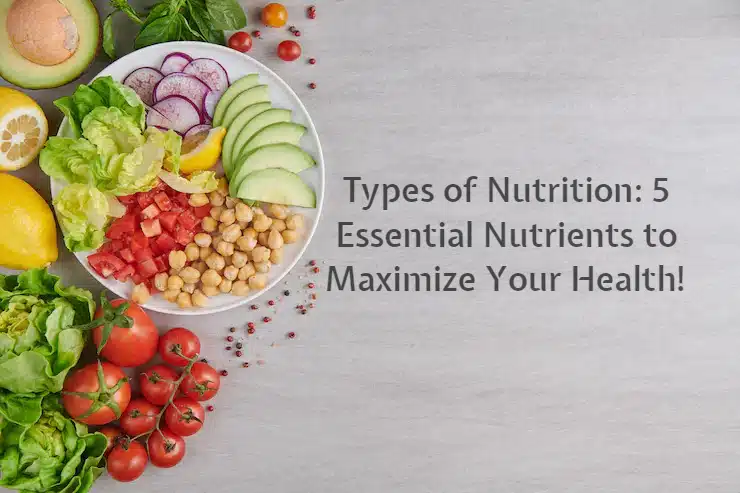5 Essential Nutrients for 2025 to supercharge your health: Vitamin D, Omega-3 fatty acids, Magnesium, Vitamin B12, and Iron. These powerhouses strengthen immunity, support heart and brain health, enhance energy, and combat fatigue, addressing common deficiencies caused by modern diets and lifestyles. Incorporate them through nutrient-rich foods like fatty fish, leafy greens, nuts, eggs, and citrus, or consider supplements after consulting a doctor to ensure optimal intake and avoid toxicity.
5 Essential Nutrients for 2025
1. Vitamin D
- Why It’s Essential: Supports bone health by aiding calcium absorption, boosts immunity, and promotes mood and cardiovascular health. Deficiency increases risks of osteoporosis, infections, and heart disease.
- Why It’s a Concern: Limited sun exposure, urban lifestyles, and darker skin tones increase deficiency risks, especially in winter.
- Sources:
- Food: Fatty fish (salmon, mackerel), egg yolks, fortified dairy, cereals.
- Sunlight: 15–30 minutes of midday sun exposure (varies by skin type/location).
- Supplements: 2,000–4,000 IU/day, tailored via blood test. Consult a doctor.
- Tip: Take with fat-containing meals for better absorption (fat-soluble).

2. Omega-3 Fatty Acids
- Why It’s Essential: EPA, DHA, and ALA reduce inflammation, support heart health, and enhance brain function (cognition, mental clarity). Critical for preventing cardiovascular and neurological issues.
- Why It’s a Concern: Diets low in fatty fish or high in processed foods lack Omega-3s. Plant-based diets may not provide enough bioavailable EPA/DHA.
- Sources:
- Food: Fatty fish (salmon, sardines), walnuts, flaxseeds, chia seeds.
- Supplements: Fish oil or algae-based supplements (1.5–2g EPA/DHA daily).
- Tip: Vegans should prioritize algae-based Omega-3s, as ALA conversion to EPA/DHA is inefficient.

3. Magnesium
- Why It’s Essential: Involved in 300+ enzymatic reactions, including muscle function, stress regulation, DNA repair, and blood pressure control. Improves sleep and reduces cramps.
- Why It’s a Concern: Soil depletion, processed foods, stress, and medications reduce magnesium levels.
- Sources:
- Food: Leafy greens, nuts (almonds, cashews), seeds, whole grains, dark chocolate.
- Supplements: 300–400 mg/day (citrate or glycinate forms). Consult a doctor.
- Tip: Avoid taking with high-fiber meals to enhance absorption.

4. Vitamin B12
- Why It’s Essential: Supports red blood cell production, neurological function, and DNA synthesis. Deficiency causes fatigue, anemia, and nerve damage.
- Why It’s a Concern: Common in vegans, vegetarians, and older adults due to low intake or poor absorption. Certain medications (e.g., metformin) increase deficiency risk.
- Sources:
- Food: Meat, fish, eggs, dairy, fortified plant milks, nutritional yeast.
- Supplements: 500–1,000 mcg/day (cyanocobalamin or methylcobalamin).
- Tip: Regular blood tests are crucial for those at risk (e.g., vegans, elderly).

5. Iron
- Why It’s Essential: Vital for oxygen transport, energy production, and immune function. Deficiency leads to anemia, fatigue, and weakened immunity.
- Why It’s a Concern: Common in women (due to menstruation), vegetarians, and those with poor diets. Plant-based iron (non-heme) is less bioavailable.
- Sources:
- Food: Red meat, poultry, fish, lentils, spinach, fortified cereals.
- Supplements: 18–27 mg/day for deficient individuals. Consult a doctor.
- Tip: Pair plant-based iron with Vitamin C (e.g., citrus) to boost absorption; avoid tea/coffee with meals, as they inhibit it.

How to Incorporate These Nutrients
- Diet First: Prioritize nutrient-dense foods like fatty fish, leafy greens, nuts, fortified products, and lean meats. A varied diet helps cover most needs.
- Supplements as Needed: Use supplements for dietary gaps (e.g., vegan B12, winter Vitamin D), but consult a healthcare provider to avoid toxicity.
- Lifestyle Support: Get safe sun exposure for Vitamin D, manage stress for magnesium, and monitor blood levels for B12/iron if at risk.
Also Read This : What is PCOD? : Causes, Symptoms, Treatment. What Happens and How to Manage It.
Important Notes
- Balance Is Key: Over-supplementation risks toxicity (e.g., Vitamin D hypercalcemia, magnesium digestive issues, iron overload). Tailor intake with professional guidance.
- Special Considerations: Conditions (e.g., kidney disease) or medications (e.g., GLP-1 agonists) may affect nutrient needs. Blood tests or dietitian consults provide clarity.
- Stay Informed: Dietary trends and research evolve, so check reliable sources or professionals for personalized advice.
By prioritizing these five nutrients in 2025, you can address common deficiencies and support long-term health.




